Fordham Should Not Abuse Its Status as a Private Institution to Censor Free Speech
February 10, 2021
On Dec. 22, 2016, the last day of the fall semester, then-Dean of Students Keith Eldredge sent an email that incited four long years of legal action and fees. In the email, the dean denied by Students for Justice in Palestine (SJP) request to form a club after the United Student Government had already approved it.
The dean wrote that he “cannot support an organization whose sole purpose is advocating political goals of a specific group, and against a specific country, when these goals conflict with … (the) values of the University,” all the while without specifying what values SJP contradicted.
In response, the members of SJP went to court, using a New York state law (article 78) that allows students to challenge a decision at a private school if the decision was contrary to the institution’s own rules, which SJP felt was the case.
The court’s decision demonstrates how profoundly Fordham’s label as a private institution has enabled it to restrict the rights of the student body.
On Dec. 22, 2020 — exactly four years after Eldredge’s letter — the New York State Appellate Court overturned the 2019 ruling and held that Fordham was actually within its rights to deny the club. The court added that SJP’s political activism could potentially be disruptive to student life and as a result, they are still fighting for recognition to this day.
The court’s decision demonstrates how profoundly Fordham’s label as a private institution has enabled it to restrict the rights of the student body. By silencing the political opinions of SJP, especially at a university where other partisan clubs exist, the Fordham administration has shown a concerning lack of support for the diversity of student opinions on campus.
Discussions and support for SJP’s case and cause have extended past campus and onto social media. The Instagram page @fordhamsjp provides its audience of 954 followers with updates on the court case, general information on the conflict between Israel and Palestine, and resources for other human rights movements. Its new posts receive hundreds of likes from the Fordham community and beyond, as the ongoing legal battle has brought the club national recognition.
@lc_sinners, a popular Instagram meme page that caters to Fordham students, has also backed SJP by posting multiple memes about Fordham’s censorship of the club, particularly attacking Fordham’s flimsy “private institution” excuse for silencing students.
As student journalists, we at The Observer feel that free speech is crucial to the well-being of the university community. The student body cannot be expected to grow and learn in an environment where the only ideas that are permitted are those that the administration deems acceptable.
While Fordham is a private university, it still received $19.6 million in 2018 of a total of $933.5 million and $2.5 million in 2019 in government grants. When any private university receives federal funding, however miniscule, it should abide by federal law. Therefore, its students and their free speech should be protected from actions like those that Eldredge has started against SJP.
As long as this continues, it will suppress those student voices that are unsuitable for the image it wants to project.
When discussing freedom of speech at a private institution like Fordham, we would be remiss in not mentioning the case of Austin Tong. In a similar action to SJP, Tong attempted to challenge a disciplinary action in court, but his case was dismissed since it was decided that the university administration had reasonable grounds to believe that Tong’s behavior was hate speech. His case shows that SJP’s case is not the only target of Fordham censorship; however, his comments online sparked reactions of fear and condemnation within Fordham that SJP has not received.
Tong’s behavior was criticized heavily by many in the university community, and many people expressed “fears for their own safety.” Contrary to Tong, SJP has garnered a wide array of support from the Fordham community.
It is clear that Fordham has hidden behind its status as a private university — meaning that the vast majority (nearly 88%) of the revenue for the university comes from tuition and fees alone — and it abuses that power to play fast and loose with its First Amendment allowances. As long as this continues, it will suppress those student voices that are unsuitable for the image it wants to project.
As the first of its kind, SJP’s case has set the precedent for all of New York state’s private universities. College students in this state or anywhere should not be silenced for expressing their political views in a peaceful and nondiscriminatory manner, yet their freedom of speech is now in danger because of Fordham’s actions.
Moreover, all students are paying for the duct tape that Fordham is putting over SJP’s mouth. The legal fees for the SJP trial were included in our tuition bills, a shockingly improvident and uncompassionate use of money during a time when it could have been used to alleviate financial hardships wrought by COVID-19.
Is this use of funds, power and time truly in line with Fordham’s values?

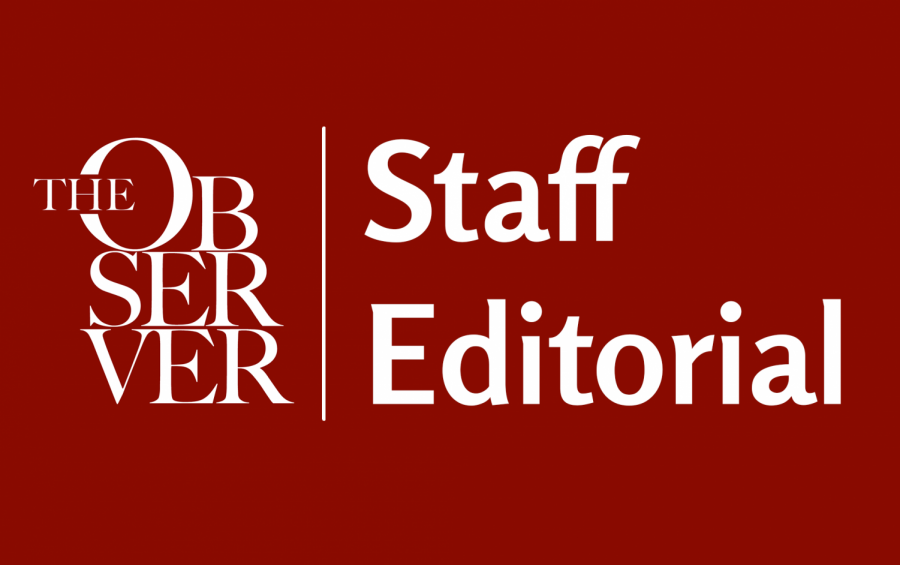
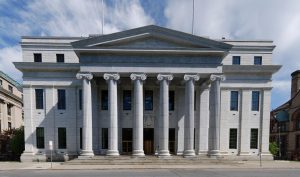
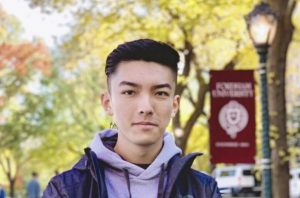
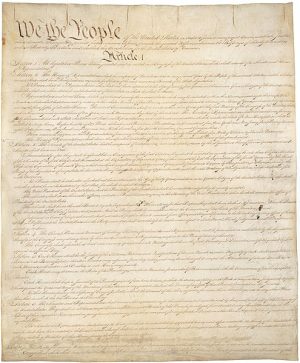
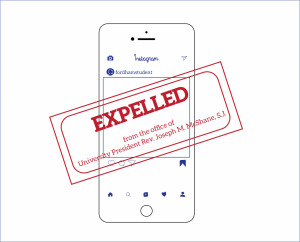











Ross Hasselbach • Feb 16, 2021 at 3:14 am
I remember a club I was a part of, Hillel, organized an interfaith dinner. It was a Friday night and we, as well as the Muslim Student Association and the Catholic Association, pitched in and got some food to eat together. However (Gasp!), someone was protesting against the state of Israel, again, at this event; none other than SJP, of course. Of course, I was under the impression that protesting against minorities is wrong, but SJP gets a special “muh freedom of speech” pass because someone has to let the damn Jews know they won’t live in peace without paying a price for their existence. Oh, but no, it didn’t stop there. They had to keep harassing us at a fashion show until the police was called, they had to go around flinging fake blood and having “die-ins” when we wanted to recruit members. Note, we weren’t there to scout for good Zionist soldiers for the cause, but fellow Jews who wanted to be in better touch with their Judaism. The final straw was when one the members said she “gave up on changing Zionists’ mind” and that she “had no problem with the Jews,” but that she wanted to replace our organization with a “proper Jewish organization, one that allows Jews to express their faith, but one that doesn’t support Israel.” Don’t believe me? Here’s the official story: https://www.jta.org/2018/05/08/united-states/stony-brook-universitys-muslim-chaplain-fire-pro-palestinian-students-defending-campus-hillel. Dear editorial staff, I’m afraid my dumb pea-sized Jewish brain does not comprehend why this is simply an expression of freedom of speech. I mean, all they’re doing is advocating for the removal of an organization against the desires of its constituents and remaking it as they see fit, disregarding input from said constituents.
If there’s something I’ve learned, it’s that people like these don’t stop like the dogs they are, and they will say anything and everything to stay alive, including the tried and failed “Freedom of speech.” My, I’d guess you’re quite the libertarians, I wonder what you’d think about barking the N-word in a public square, or gender pronouns like Jordan Peterson. You won’t stop until Jews are back to their “rightful place” just like we were in the Soviet Union. It’s incredible how progressive non-Jews fight so hard against the desires and concerns of actual Jews, while allying themselves with other people of color steadfastly. Just ask the wonderful Mr. Corbyn on the reports of Antisemitism or perhaps the highly esteemed scholar Angela Davis on her assessment of Soviet Jewry. All “Zionist lies.” Disgusting. You hear that editorial board? It’s a proud Jew who has had their concerns ignored for too long, and is speaking up. You will never silence me, long live the people of Israel and its nation.
Brandon Sapienza • Feb 11, 2021 at 6:51 pm
SJP’s very existence threatens the Jewish population at Fordham. SJP supports a Palestinian government run by terrorists whose prime goal is to wipe out the Jewish people and take back land that is internationally deemed to not be their land